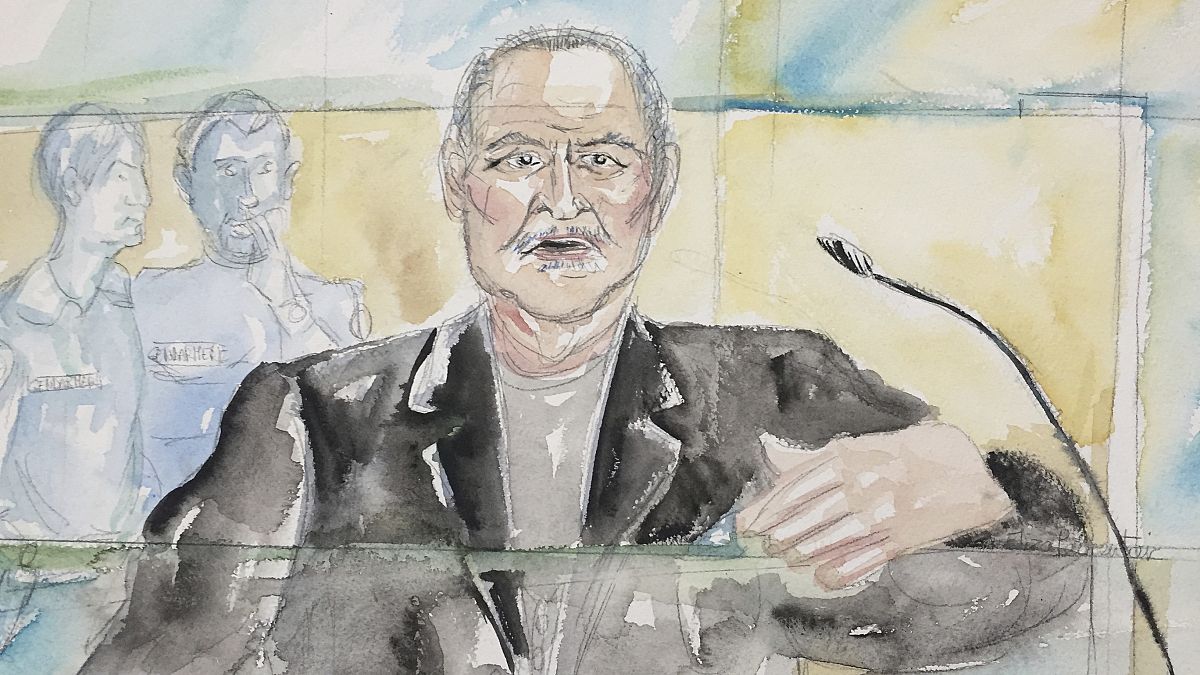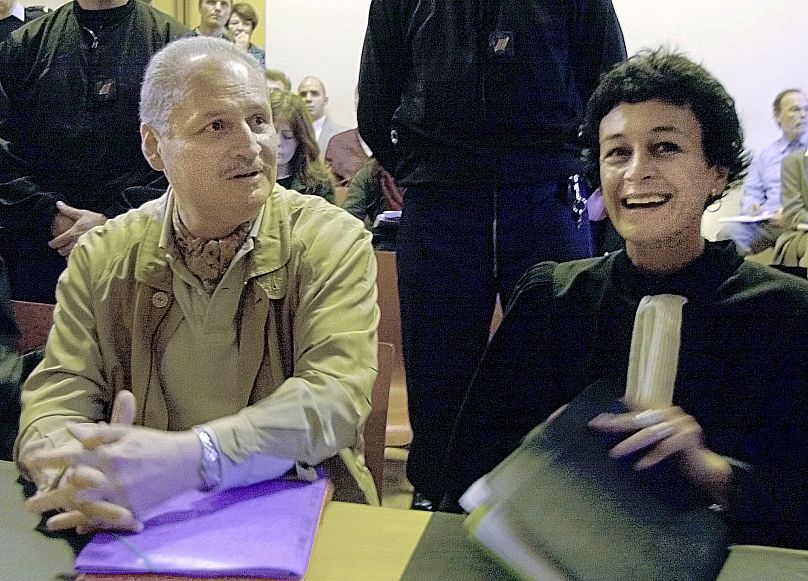The convicted Venezuelan terrorist known as the "Carlos the Jackal" has has his third life sentence upheld, which was handed down for a 1974 grenade attack in Paris.
The convicted terrorist known as "Carlos the Jackal" has lost an appeal against his life prison sentence in Paris.
Ilich Ramirez Sanchez, also known as Carlos, was an "anti-imperialist" who carried out worldwide attacks in the 1970s and 1980s.
The Venezuelan man was given life in prison for throwing a grenade in a Paris shopping centre in 1974, killing two people.
Sanchez had appealed to reduce his sentence to the special court of assizes of Paris, 47 years after the attack.
But at the third trial on Friday, the French court rejected his appeal and confirmed his life sentence after more than two hours of deliberations.
It is likely to be the last trial in France for Sanchez, who was one of the world's most wanted men and is serving two other life sentences.
Who is "Carlos the Jackal"?
Ilich Ramirez Sanchez, a self-proclaimed "professional revolutionary," was born in Venezuela in 1949.
He became well-known for his involvement in camps in Jordan and then in Europe, for an armed wing of the Popular Front for the Liberation of Palestine (PFLP).
The nickname "Carlos the Jackal" was given to him after a copy of Frederick Forsyth's "The Day of the Jackal" was seen by a reporter at Sanchez's London flat.
Sanchez still declares himself to be at the service of the Palestinian cause and claims to have "killed 83 people, at least".
He was blamed by France for a deadly attack on the Drugstore Publicis near Paris' Champs Elysees on 15 September 1974.
At around 17:10, a grenade thrown from the mezzanine restaurant exploded in the shopping centre below. Two people were killed and at least 34 others wounded.
According to the prosecution, Sanchez carried out the attack to put pressure on France to release a detained Japanese man -- a member of the Japanese Red Army, a branch of the PFLP.
After several years as a refugee in eastern Europe and Arab countries, Sanchez was finally detained by French secret services in Sudan in 1994 and transferred to France.
Sanchez was then found guilty of a 1975 triple murder in Paris of two French secret service agents and an informant, and for four bomb attacks between 1982 and 1983 that left 11 dead and 191 injured.
The French secret services have attributed other attacks to Sanchez, such as a hostage-taking at the French embassy in The Hague and the attempted attack on two Israeli planes at Orly.
He also led the kidnapping of OPEC's oil ministers in a raid on its Vienna headquarters in 1975, which left three people dead.
Since his capture, he has been serving two life sentences in jail for the triple murder and the bombings.
In a detention report read by the prison president, where he has been incarcerated for 13 years, Sanchez was said to have a "condescending, grumbling attitude", and an "egocentric personality".
"Carlos" disputed this in court and has described himself as a "political prisoner".
Why was he back on trial?
In March 2017, "Carlos the Jackal" was given a third life sentence for the 1974 Paris attack, a verdict that was confirmed one year later on appeal.
But France's Court of Cassation in November 2019 ordered a new trial to once again examine the length of this sentence.
Sanchez had been convicted of murder and attempted murder by "the effect of an explosive power" related to the grenade attack. But the higher court overturned a charge of transporting a grenade "without legitimate reason".
His lawyer Isabelle Coutant Peyre, who became his companion in detention, has claimed that Sanchez was the victim of "judicial archaeology".
Peyre said that if Sanchez was not convicted of the transportation of weapons, he could not have been guilty of any of the other charges.
Sanchez, now aged 71, had described his time behind bars in France as a vacation and even raised his fist to greet the few supporters in the courtroom.
"I have been on forced holiday in France for twenty-seven and a half years," he said at the start of his trial.
At the trial in Paris, he had even objected to a search of his clothes upon arrival at the courthouse, stating that "nothing illegal" had ever been found on him.
Carlos tried to intervene on several other occasions during the trial, but the presiding judge prevented him from doing so.
When asked about his "prospects", Sanchez said he wanted to "return to Venezuela", where he was sure he would be "respected".

